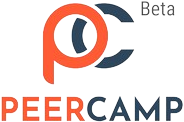Code Smart: Interactive Coding Adventures with a Senior Coding Coach
- All Levels
- 45 minutes
- 1-15 Years
-
 Online Classes (Group)
Online Classes (Group)
 INR 850.00 Weekly
INR 850.00 Weekly

Varsha Ramesh
India |
(1 vote)
Are you looking for a fun and engaging way for your child to learn coding? I’m a Senior Coding Coach with over 5 years of experience in teaching students through hands-on, interactive lessons.
I specialize in such as HTML, CSS, JavaScript, and Python (Basics), making complex concepts easy to understand. My teaching style includes fun activities, real-world projects, and creative problem-solving, tailored to each learner’s pace and interest.
Students will also get exposure to advanced and exciting tools like TinkerCAD (3D design), Google Dialogflow (AI chatbots), and many more platforms that spark innovation and curiosity.
Whether your child is a beginner or looking to deepen their knowledge, I ensure every session is impactful, enjoyable, and packed with learning.
Let’s make coding a fun adventure!
CodeIgniter 4: Build Real Estate Management System
- Intermediate
- 8 hours 38 minutes
- 11-18 Years
-
 Courses
Courses
 INR 400.00
INR 400.00

Mohamed Hassan
Egypt |
(1 vote)
Are you ready to take your web development skills to the next level? Join my comprehensive online course, "CodeIgniter 4: Build Real Estate Management System," and dive into the world of modern web application development using CodeIgniter 4, a powerful PHP framework.
In this course, we will guide you through the process of building a robust real estate management system from scratch. Whether you're a beginner or an experienced developer looking to expand your skill set, this course will provide you with the knowledge and hands-on experience needed to create dynamic and efficient web applications.
Throughout the course, you will learn the ins and outs of CodeIgniter 4, the latest version of this popular framework. We will cover essential topics such as MVC architecture, routing, database integration, form validation, user authentication, and much more. With each lesson, you will gain a deeper understanding of how CodeIgniter 4 works and how to leverage its features to build professional-grade applications.
By the end of this course, you will have built a fully functional real estate management system that includes features like property listings, search functionality, user management, and administrative control. You will also learn best practices
What sets this course apart is its focus on practical, real-world application development. You will work on hands-on features that simulate real-life scenarios, allowing you to apply your newly acquired knowledge in a meaningful way. I will provide guidance and support throughout the course, ensuring that you have the resources you need to succeed.
Whether you're a freelancer, a web development enthusiast, or a professional looking to enhance your portfolio, "CodeIgniter 4: Build Real Estate Management System" is the perfect course to equip you with the skills necessary to thrive in the ever-evolving world of web development. Enroll now and unlock your potential as a CodeIgniter 4 developer!
Who this course is for:
- People who have learned PHP CodeIgniter and want to build a full project
- Developers who want to build their CVs
Complete Physics Course for Class 12 with Live Sessions (Full Course)
- All Levels
- 50 hours
- 16-18 Years
-
 Online Classes (Group)
Online Classes (Group)
 INR 6000.00 Monthly
INR 6000.00 Monthly

Venkata Vijaya Kumar Veluri
India |
(1 vote)
This Class XII CBSE Physics course offers a comprehensive understanding of all key concepts, integrating theory with practical applications. It prepares students for board exams and competitive exams like JEE, enhancing problem-solving skills and conceptual clarity.
Curriculum Structure
Unit I: Electrostatics
- Electric charges and fields – Electric charges, conservation, Coulomb’s law, force between charges, superposition principle, electric field, field lines, dipole, torque, flux, Gauss’s theorem and its applications.
- Electrostatic potential and capacitance – Potential, equipotential surfaces, potential due to point charge/dipole/system, potential energy, conductors, dielectrics, capacitors, series/parallel combinations, energy in capacitor.
Unit II: Current Electricity
- Electric current, drift velocity, mobility, Ohm’s law, resistivity, conductivity, temperature dependence, internal resistance, emf, combination of cells, Kirchhoff’s laws, Wheatstone bridge, metre bridge, potentiometer.
Unit III: Magnetic Effects of Current and Magnetism
- Moving charges and magnetism – Biot-Savart law, Ampere’s law, force on current-carrying conductor, torque on coil, galvanometer, conversion to voltmeter/ammeter.
- Magnetism and matter – Bar magnet, earth’s magnetism, magnetic elements, dia-, para-, and ferromagnetic substances, hysteresis.
Unit IV: Electromagnetic Induction and Alternating Currents
- Faraday’s law, induced emf, Lenz’s law, eddy currents, self and mutual induction, AC circuits (resistor, inductor, capacitor), reactance, impedance, LC oscillations, resonance, transformer.
Unit V: Electromagnetic Waves
- Need of displacement current, electromagnetic waves and their characteristics, transverse nature, spectrum (radio to gamma rays).
Unit VI: Optics
- Ray optics and optical instruments – Reflection, refraction, total internal reflection, lens formula, magnification, power, microscopes, telescopes.
- Wave optics – Huygens’ principle, interference, Young’s double slit, diffraction (single slit), resolving power, polarization, Brewster’s law.
Unit VII: Dual Nature of Radiation and Matter
- Photoelectric effect, experimental study, Einstein’s equation, matter waves, de Broglie relation, Davisson-Germer experiment.
Unit VIII: Atoms and Nuclei
- Atoms – Rutherford, Bohr model, energy levels, hydrogen spectrum.
- Nuclei – Composition, size, mass-energy relation, binding energy, radioactivity (α, β, γ decay), nuclear fission and fusion.
Unit IX: Electronic Devices
- Semiconductors (intrinsic, extrinsic), p–n junction diode, I–V characteristics, junction diode as rectifier, LED, photodiode, solar cell, Zener diode, transistor characteristics, transistor as amplifier/switch.
Confident Communicators: Public Speaking & Communication Skills
- Beginner
- 10 hours
- 1-15 Years
-
 Online Classes (1-to-1)
Online Classes (1-to-1)
 INR 300.00 Per Lesson
INR 300.00 Per Lesson

Ehtisham Rafiqi
India |
(1 vote)
Communication courses are vital for children as they enhance their ability to express ideas clearly, build confidence, and develop interpersonal skills. These courses lay the foundation for academic success, foster social connections, and prepare children for future professional and personal interactions.
Lesson 1: Body Language
- In this lesson, I introduce students to how to use Body Language
Lesson 2: Storytelling
- In this lesson, I curate students to be a confident storytellers
Lesson 3: Fairy Tale Writing
- In this lesson, I curate students to be a writer and a storyteller
Crash course in IELTS - 15 days only!
- All Levels
- 10 hours
- 16-18 Years
-
 Online Classes (1-to-1)
Online Classes (1-to-1)
 INR 3000.00 Weekly
INR 3000.00 Weekly

Sruthi Nandan
India |
(1 vote)
Learn the ins and outs of the reading, listening , writing, and speaking sections in a short period. This course is apt for professionals who have very little time to study.
Creative Coding for Curious Minds
- Intermediate
- 40 minutes
- 1-15 Years
-
 Online Classes (1-to-1)
Online Classes (1-to-1)
 INR 550.00 Per Lesson
INR 550.00 Per Lesson

Varsha Ramesh
India |
(1 vote)
Learn to code the easy and exciting way with, and also dive into the world of Python, HTML, CSS, and JavaScript, all explained in a simple, kid-friendly manner. Whether you're a beginner or just curious, you'll see how coding can be fun and creative. Let's build games, websites, and more together!
Cucumber & Seleinium for BDD with Java Course
- All Levels
- 1 hour 10 minutes
- 11-18 Years
-
 Courses
Courses
 INR 450.00
INR 450.00

Mohamed Soliman
Germany |
(1 vote)
Learn in this course about Cucumber and Selenium. The powerful tools for test automation.
Complete course to get you started. All the tools used are free source. 24 lectures with examples. Full coverage of all aspects of the subject.
What's cucumber?
Cucumber is a tool that supports Behaviour-Driven Development(BDD). If you’re new to Behaviour-Driven Development, read our BDD introduction first.
What is Gherkin?
Gherkin is a set of grammar rules that make plain text structured enough for Cucumber to understand. The scenario above is written in Gherkin.
What are Step Definitions?
Step definitions connect Gherkin steps to programming code. A step definition carries out the action that should be performed by the step. So, step definitions hard-wire the specification to the implementation.
What's Selenium?
- Selenium automates browsers.
- What you do with that power is entirely up to you.
- Primarily, it is for automating web applications for testing purposes, but it is certainly not limited to just that.
- Boring web-based administration tasks can (and should) also be automated as well.
What is Automation Testing?
Automation Testing is a software testing technique that performs using special automated testing software tools to execute a test case suite. On the contrary, Manual Testing is performed by a human sitting in front of a computer, carefully executing the test steps.
Digital Wellbeing & Social Media Balance
- All Levels
- 5 hours
- 1-18 Years
-
 Online Classes (1-to-1)
Online Classes (1-to-1)
 INR 600.00 Per Lesson
INR 600.00 Per Lesson

Trijita Sengupta
India |
(1 vote)
Course Structure
- Screen time addiction
- Anxiety
- Depression
- Comparison & Low Self-Esteem
- Poor Academic Performance
- Sleep Disturbance
- Lack of Focus
Do you know The 8 parts of Speech? Let us talk about Nouns
- Beginner
- 60 minutes
- 6-18 Years
-
 Online Classes (1-to-1)
Online Classes (1-to-1)
 INR 1000.00 Per Lesson
INR 1000.00 Per Lesson

Faith Omete
Kenya |
(1 vote)
Welcome to our space where we learn Grammar and more specifically parts of speech.In our lesson,we make mistakes and learn from them.We interact through asking questions,discussing and doing reviews.Join the team today and let us learn effectively together.
Curriculum Details
Lesson Name: Nouns
- Types of Nouns.
- Grammatically correct sentences.
- Well-structured sentences.
Element of Art- Line Using Gond Art as Inspiration
- All Levels
- 45 minutes
- 1-15 Years
-
 Online Classes (Group)
Online Classes (Group)
 INR 1500.00 Per Lesson
INR 1500.00 Per Lesson

Varsha Bafna
India |
(1 vote)
Using the Element of Art- Line and taking inspiration from Gond Art to create a painting. Gond Art uses different types of lines to create different textures.
First, a brief presentation about Gond Art will be shared. We will discuss the different kinds of lines and observe them in the art form.
Lesson Breakdown:
- Introduction to Line (5 minutes)
Begin with a brief discussion: “What is a line in art?” I will show examples of different kinds of lines: straight, curved, zigzag, wavy, dotted, and mention that lines can express movement, texture, and shape. - Introduction to Gond Art (5 minutes)
It’s a tribal art form from Madhya Pradesh, India. Traditionally, it uses lines, dots, and vibrant colors to fill animal or nature forms. Lines are used decoratively to create patterns and textures.
- Fun Fact: Gond artists believe that “seeing a good image brings good luck.”
- Art Activity Instructions (5 minutes)
Learners will draw an animal, tree, or bird. Colour or paint the picture and then use sketch pens to render it by using different kinds of lines and dots by taking inspiration from Gond Art.


















 Academics
Academics Tech Skills
Tech Skills Soft Skills
Soft Skills Hobbies & Wellness
Hobbies & Wellness
